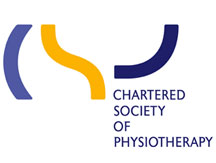I am Louise Young, 44 years old (possibly peri-menopausal) mum of two crazy boys and lover of giant breed dogs. I have worked as a physiotherapist for 20 years and Women’s Health is my passion.
Women’s health physiotherapy is the assessment and respectful treatment of all disorders relating to the pelvic floor. Nobody should suffer the impacts of incontinence, prolapse or pelvic pain in silence. The evidence is strong that most disorders of the pelvic floor can be significantly alleviated or resolved with specialist treatment and advice.
Physiotherapy for pelvic floor conditions
Nobody should suffer the impact of incontinence, prolapse or pelvic pain in silence. The evidence is strong that most pelvic floor conditions are resolved quickly with specialist physiotherapy. I can help you with
- Incontinence
- Pelvic Organ Prolapse
- Irritable Bladder Symptoms (any issue with urination)
- Bladder Pain Syndrome (any pain emanating from the bladder)
- Pelvic Pain
- Vulvodynia (chronic pain associated with the vulva)
- Vaginismus ( an involuntary physical aversion to vaginal penetration)
- Painful sex
- Bowel problems
- Pre and Post Gynaecological Surgery Rehabiliation.
Physiotherapy during pregnancy and post natally
Pregnancy and motherhood should be a wonderful and exciting time in a women’s life, but it also places huge physiological demands on our bodies that can result in 2/3rds of pregnant women experiencing back pain, 1/5th suffering pelvic pain, and over 40% of women experiencing symptoms of urinary incontinence in their first pregnancy.
Although these symptoms are common in pregnancy and beyond, they should not be considered normal. A specialist pelvic floor physiotherapist can help you restore your core and pelvic floor so you feel empowered to enjoy motherhood and live life to the full. I can help you with:
- Pelvic Girdle Pain
- Back Pain or Sciatica in Pregnancy
- Thoracic, Rib or Coccyx pain
- Perineal Massage
- Recovery following 3rd or 4th degree Perineal Tears
- Difficulty resuming your Intimate Relationship
- C – section scar massage
- Rectus diastasis (tummy muscle separation)
- Pelvic Organ Prolapse.
What will my initial assessment include?
Consultation
If you are seeking treatment for a pelvic floor dysfunction, such as incontinence, prolapse or pain on intimacy, do be prepared that I will probably ask you lots of very personal questions about your bladder, bowel function and even your intimate relationship. But please rest assured, I will most probably have heard it all before! Talking about any of these issues can feel daunting, but it is of upmost importance to me that you feel safe and comfortable throughout.
Physical examination.
Once you have had time to discuss your symptoms and concerns, we will move on to a physical examination. This may start with looking at your posture, possibly assessing your back and hips, your tummy muscles, even the way you move and breathe can give me valuable information.
With your consent, an internal examination of the pelvic floor muscles is always beneficial, to assess the function of the pelvic floor muscles, and to be certain that you are doing pelvic floor exercises correctly (many women aren’t!). We can assess for prolapse, or examine for any causes of pain or problems with your pelvic health.
An internal examination should be a painless experience (or I am not doing my job correctly). You do not need to prepare yourself in anyway, no instruments will be used, just gloves and lubrication. I will check that you feel comfortable throughout.
After the examination, you can get dressed and we can figure out a treatment plan. This often involves an individualised programme of exercises, and self-help strategies that you can start working on straight away to begin seeing an improvement in your symptoms. We can establish your goals, and discuss any in-clinic treatment that will help you achieve them




